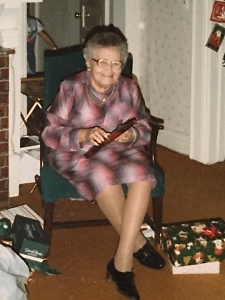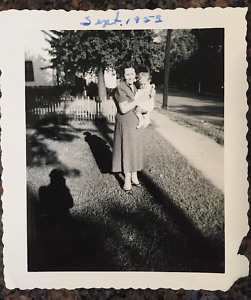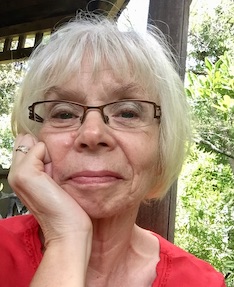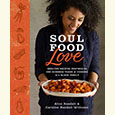Suffrage: Giving Voice
A grandmother’s legacy
“I’ve never voted,” she said. The grandmother I adored. The grandmother whose oak-like presence sheltered and grounded my turbulent childhood. During a visit decades ago, we must’ve been talking about an election, the TV news on. I remember feeling stunned, then embarrassed, and even a little ashamed at her complacency. True, my grandmother didn’t drive — her one driving lesson had landed her and my mother smack into a telephone pole and her in the hospital. But what did driving matter when the city buses ran to the polling stations, when friends’ cars idled faithfully at her front steps every Sunday for church?

I’d fought to find and use my voice: in my writing of poems and plays, returning to college for a B.A. then M.A. in my 30s; in my traditional marriage where speaking out was more and more threatening to the delicate balance of maintaining it. At the time of my grandmother’s revelation, I was unaware of Tennessee’s one crucial “aye” to pass the 19th Amendment granting women the right to vote — or had forgotten that long-ago history class. Women reject the notion of being “granted” this basic democratic right, saying no one gave them the vote — they won it over 70 years of struggle, sacrifice, and disappointment.
And yet there was my grandmother, my rescuer who set me on the path to claiming and speaking my piece, remaining voiceless.
And there she was in Nashville, my hometown, the last stand where legislators, lobbyists, and reporters converged for Governor A.H. Roberts’ special session in a sweltering August 1920 to determine suffrage for all, not just male, citizens. Where generations of women who marched and picketed and campaigned — were even imprisoned and brutally force-fed — had finally rallied a federal amendment to the U.S. Constitution to be ratified state by state, needing 36 to become law. With most of the South voting against the amendment or abstaining, Tennessee was that “Perfect 36” where hopes across the nation were pinned.
I’m especially interested in this historic movement and its dramatic conclusion not only because 2020 is the 19th Amendment’s centennial, but also as a proud Tennessean with roots in Middle Tennessee and nearly 50 years in East Tennessee, where the youngest state representative, Harry T. Burn, changed his vote from nay to aye after receiving a letter from his mother, Febb Burn in Niota, telling him to “be a good boy” and vote for suffrage. He listened to his mother — and forever changed women’s lives in our country.

I was honored to participate in the statewide interview project, Every Woman Vote, created by Amy Gibson and Bob Deck at Wide Lens Media. In filming, they asked me to tell my voting story. I remembered the thrill of my first vote in 1972, after the voting age had been lowered to 18 in 1970. I thought of how my daughters text me from the voting booth to ask my opinion. But I said I had no voting story. Instead, I talked of how, as a writer, I’m particularly aware of the importance of giving voice to effect change.
I had buried my grandmother’s words — “I’ve never voted” — so deeply that I couldn’t possibly claim them as part of my story. In fact, they’re the very heart of my story. A buttonholer in a men’s shirt factory for 30 years, with four stairstep daughters and an alcoholic husband who couldn’t keep a job, my grandmother was exactly the kind of woman the industrial lobbyists and factory owners were terrified would get the vote in 1920 — and demand child labor laws, a minimum wage, humane working conditions, and shorter work hours. So they berated, bribed, and liquored up the Tennessee legislators in the midst of Prohibition to ensure the House would strike down the amendment after it had passed in the Senate. They failed. The amendment passed. By one vote.
Yet my grandmother never voted.
As a Tennessean this year, I sit in the front row of history. In memory, my grandmother’s voice quavers and lifts from the old Broadman Hymnal. She graced her family and church with kindly and constant action, attending to the needful with Tupperware salads, standing by those in trouble, a few dollars slipped into their pocket. I indeed have a voting story to tell, with her story as the seed of mine. Her hours bent over a factory machine determined my will to overcome my own uncertainties and stumbling. My will to discover and uncage my voice and shape it into the printed word that sings on and off the page.
Despite the tremendous gains that suffrage provided women, it did not create a fairytale ending. Voting rights continue to be restricted and suppressed. The poor and minorities continue to be disenfranchised. Especially in this centennial year, I will give voice to change, to agency, to the present and the future. I’ll vote not only for myself and my granddaughters, but also for the women of the past, those I hold dear and those I never knew, who had no voice.

Copyright © 2020 by Linda Parsons. All rights reserved. Linda Parsons is a poet, playwright, and the copy editor for Chapter 16. Her play, SuffRAGE: To Give Voice, with Jeannette Brown, is planned for production next year at Flying Anvil Theatre in Knoxville.

